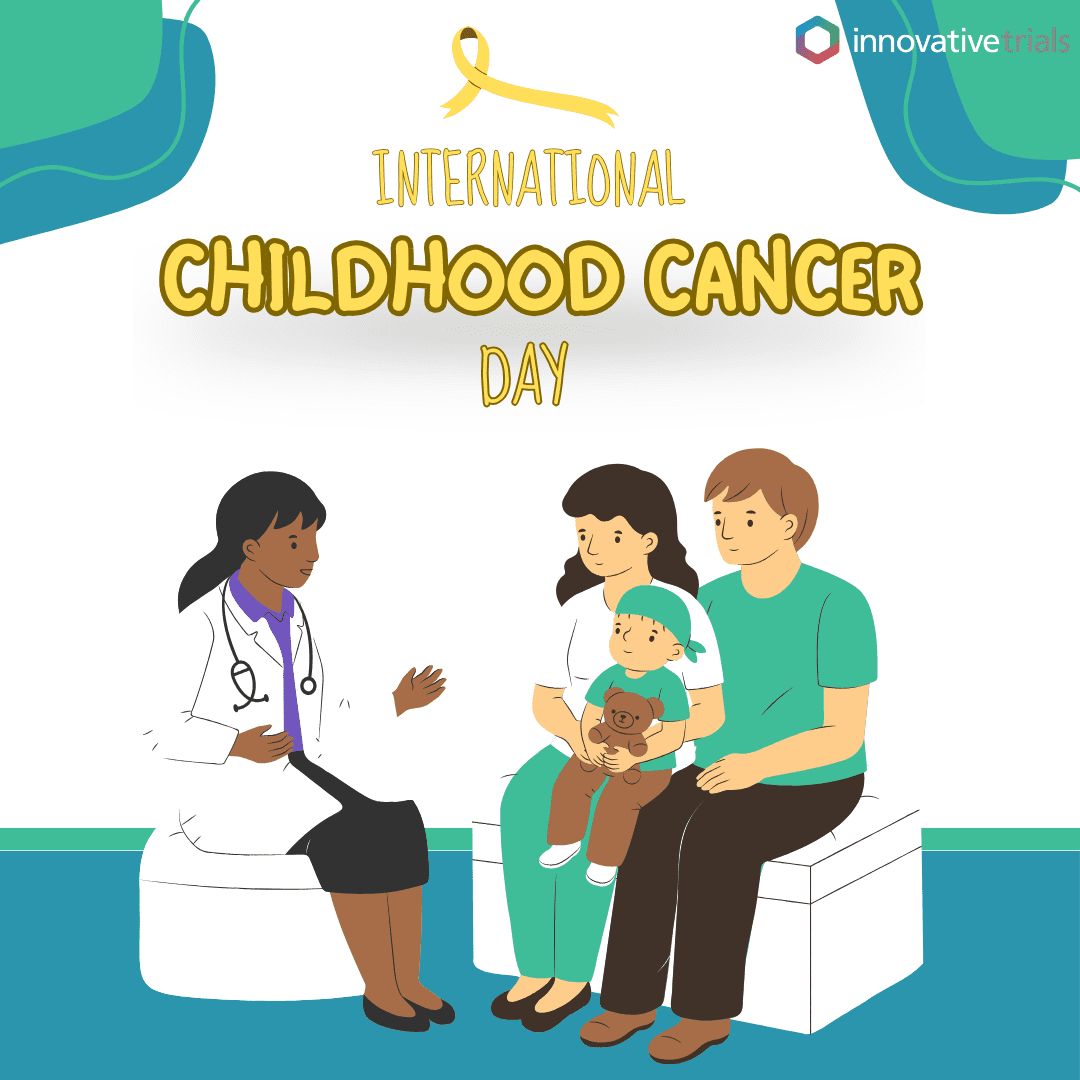International Childhood Cancer Day raises awareness of the realities of childhood cancer across the globe, for those with and those who have survived cancer, and their families. Efforts focus on getting communities involved to take on the many challenges that are caused by childhood cancer.
- Cancer is a leading cause of death for children/minors.
- Globally, over 400,000 children are diagnosed with cancer on an annual basis.
- Every 3 minutes, a child somewhere in the world is dying of cancer.
- There is a large discrepancy in the survival rates based on where children reside. There is an 80% survival rate for children in higher-income nations, but only 30% for children in lower-income nations.
- The reasons for this difference include: delays in reaching a diagnosis, inaccurate diagnoses, the unavailability of therapy, lengthy treatments being prematurely abandoned/removed, complications from treatment, failure to avert preventable relapse.
- The goal of International Childhood Cancer Day is to address the imbalance and improve prospects for all children to a survival rate of at least 60% by 2030.
Causes & Symptoms
Cancer can affect patients of any age and begins with genetic changes that lead to the development of invasive tumours that cause cellular harm, which lead to organ failure. Adult cancers tend to develop as a result of environmental factors and/or genetic predisposition. Such factors may be the cause of childhood cancers, but in many cases there is no known cause. A number of chronic infections (HPV, hepatitis B, malaria, HIV, Epstein-Barr virus) are considered to increase the risk of childhood cancers. The prevalence of such infections in lower-income nations are considered to be a significant contributing factor to the difference in survival rates based on nation. Vaccinations against these chronic infections are currently the only notable preventative measure that can be taken. Other strategies look to improve patient comfort, accurately diagnose the cancer, and deliver specialized care and treatment, to increase the prospect of a positive outcome.
Diagnosis
Early diagnosis is a key factor to ensure the best possible outcomes for young patients. This is made possible through observation of symptoms by family and/or medical care providers. Awareness of the earliest warning signs is important and may include:
- Unexplained weight loss
- Bone pain
- Fever
- Severe and persistent headaches
Evaluation follows to accurately diagnose the cancer and the stage of progression. Swift delivery of subsequent treatment is key to improve the prospect of survival. Early screening for cancer in children in high-risk populations is helpful, but few are found this way as the method is costly and inefficient.
Treatment
Treatment for the majority of childhood cancers include surgery, chemotherapy and/or radiotherapy. A significant factor that needs to be considered for children with cancer is that their physical and cognitive growth needs to be maintained. This includes monitoring their nutritional needs and ensuring that they are receiving professional support during a significantly challenging time. The availability of the required level of support can vary significantly even within the same nation, so the support of family and friends becomes all the more important.
For the unfortunate cases where only palliative care can be provided, available programmes are delivered, providing psychosocial support to patients and their families. An important aspect of care for patients in a terminal phase of cancer is the need to be provided with pain relief. This is required in the vast majority of cases and includes the need for oral morphine and a number of other medications.
Innovative Trials
Innovative Trials have been involved in a number of pediatric clinical trials. Our work supporting our UK charity partner, Great Ormond Street Hospital (GOSH), goes towards helping children dealing with a number of medical difficulties, including childhood cancer. Together, we have raised over £1000 from a number of charity events.
Innovative Trials has also recently partnered with the Oliver Patch Project (OPP), winning the Participant Engagement Award at the 2024 SCOPE Summit. Innovative Trials and OPP have launched a global Retention Patch Program, where kids joining clinical trials will receive a series of patches throughout the duration of the trial. The OPP is a non-profit organization that aims to support Oliver Patch Project Warriors on their cancer journeys by providing them with milstone patches over the many stages common to childhood cancer. These address difficult times of chemotherapy, radiation, blood transfusion, hair loss and recognise their bravery throughout.
Conclusion
The diagnosis of childhood cancer is the beginning of a very challenging time for children and their families & friends. Raising awareness of the challenges is important to ensure that patients receive the treatment they need as soon as possible, as time is a vital component to a positive outcome. Addressing the imbalance of available care globally is another major challenge that needs to be corrected irrespective of the type of cancer being suffered. The key aim of many organisations is to ensure that no child, anywhere in the world, is dying from cancer.
References
- https://internationalchildhoodcancerday.org/
- https://siop-online.org/wp-content/uploads/2015/07/ENGLISH_ICCD-2024-toolkit_FINAL-1.pdf
- https://www.emro.who.int/fr/noncommunicable-diseases/campaigns/international-childhood-cancer-day-2022.html
- https://www.stjude.org/get-involved/holidays/international-childhood-cancer-day.html
- https://www.oliverpatchproject.org/